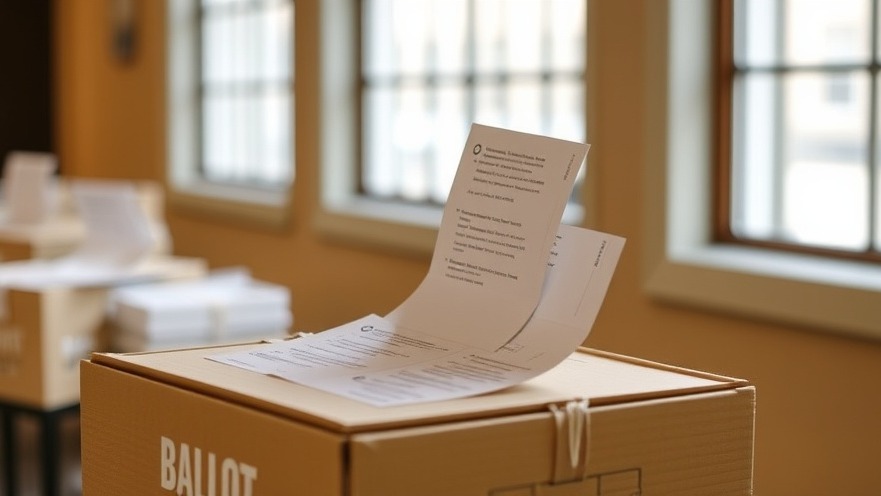
The Legal Landscape of Voter ID in Texas
The recent ruling by the U.S. Fifth Circuit Court of Appeals has upheld Texas's controversial voter ID requirements for mail-in ballots, marking a significant moment in the ongoing debate over voting rights and access in the state. This decision allows the state to continue requiring voters to provide their ID numbers on mail-in ballot applications, a provision tied to Senate Bill 1, passed in 2021. The ruling emphasizes the court's belief that these requirements comply with federal law, specifically the materiality provision of the 1964 Civil Rights Act. However, many civil rights organizations strongly oppose the law, citing it as a barrier for voters with disabilities and others who may find it difficult to meet these new criteria.
Implications of the Ruling for Voter Participation
One critical aspect of the debate stems from a study by the Brennan Center for Justice, which indicated that similar measures in the past have led to increased rejection rates of mail-in ballots during the 2022 primary elections. Many voters faced obstacles that forced them to either change their voting method or abstain from voting altogether. The implications of this ruling are profound as they will likely shape the upcoming elections in Texas, influencing voter turnout and potentially affecting the outcomes across various races. As Texas gears up for elections in 2025, concerns over accessibility and inclusivity remain at the forefront of discussions among voters and advocacy groups alike.
A Historical Perspective on Voting Rights in Texas
The voting landscape in Texas has been tumultuous over the years, reflecting broader national trends regarding voter ID laws. Historically, voter suppression tactics have disproportionately impacted minority groups, a trend that many argue continues with current legislation. The push for stringent ID requirements is often rooted in arguments about preventing fraud; however, studies have shown that instances of voter fraud are exceedingly rare. Understanding this backdrop helps to contextualize the current legal battles surrounding Texas's voting laws and highlights ongoing struggles for equitable access to the ballot box.
The Response from Different Stakeholders in Texas
Reactions to the ruling have been mixed. Texas Attorney General Ken Paxton praised the ruling, asserting that it serves to uphold the integrity of elections. Meanwhile, civil rights groups like the League of Women Voters and others have voiced their concerns, asserting that such laws create unnecessary hurdles for those wishing to vote. The division in perspectives underscores the complexities of voter legislation where the balance between securing elections and ensuring access to the polls remains starkly contested.
Future Trends in Texas Politics
Looking ahead to the Texas elections in 2025, it is essential to consider how this ruling will shape the political landscape. As voter ID requirements continue to be a point of contention, we may see increased activism from organizations advocating for voting rights, particularly among youth and minority groups. Moreover, the success or failure of these groups to mobilize could directly influence key races, making the political climate in Texas more dynamic than ever.
Call to Action for Voter Awareness and Participation
As Texans prepare to engage in the electoral process, awareness of such rulings and their implications is crucial. Voters are encouraged to familiarize themselves with the requirements for mail-in voting and to advocate for policies that ensure equitable access to the democratic process. Being informed not only empowers individuals but also strengthens community efforts to secure a fair electoral landscape in Texas.
 Add Element
Add Element  Add Row
Add Row 



Write A Comment